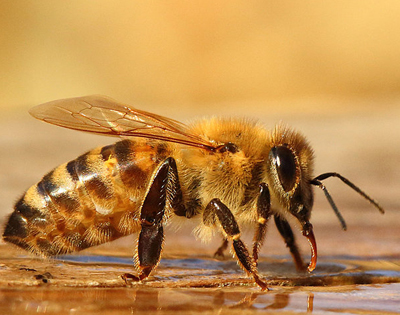Western honey bee likelier to have originated from Asia instead of Africa
 Washington, Aug 25 : A new study has found that a species of honeybee, Apis mellifera, also known as Western honey bee, which was believed to have originated from Africa, most likely come from Asia.
Washington, Aug 25 : A new study has found that a species of honeybee, Apis mellifera, also known as Western honey bee, which was believed to have originated from Africa, most likely come from Asia.
Researchers from Uppsala University presented the first global analysis of genome variation in honeybees, where the findings show a surprisingly high level of genetic diversity in honeybees.
Matthew Webster from the University said that they used state-of-the-art high-throughput genomics to address the questions, and had identified high levels of genetic diversity in honeybees. In contrast to other domestic species, management of honeybees seemed to have increased levels of genetic variation by mixing bees from different parts of the world. The findings may also indicate that high levels of inbreeding were not a major cause of global colony losses.
They also found that the honeybees seem to be derived from an ancient lineage of cavity-nesting bees that arrived from Asia around 300,000 years ago and rapidly spread across Europe and Africa. This stands in contrast to previous research that suggests that honeybees originate from Africa.
Hidden in the patterns of genome variation were signals that indicated large cyclical fluctuations in population size that mirror historical patterns of glaciation. This indicated that climate change had strongly impacted honeybee populations historically.
The researchers also identified specific mutations in genes important in adaptation to factors such as climate and pathogens, including those involved in morphology, behaviour and innate immunity.
The study is published in Nature Genetics. (ANI)